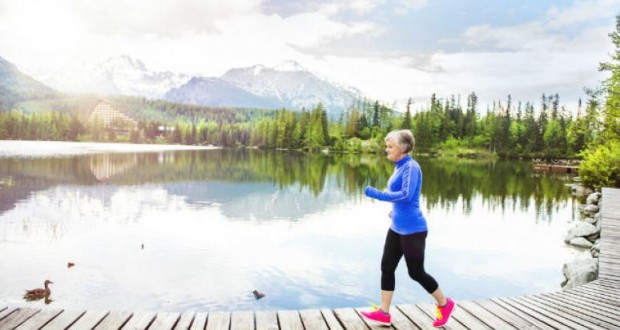By: Red Hot Mamas
Published: September 8, 2015
Contributed by Katie Rosenbrock
http://www.theactivetimes.com/fitness/your-first-time/exercising-during-and-after-menopause-what-every-woman-needs-know
Whether you already exercise regularly or you plan to begin a new fitness regimen soon, as a woman experiencing menopause you’re likely wondering how, if at all, physical activity might affect your body.
The good news is, while menopause does spur many (sometimes drastic) changes within the body, exercise is one of the best ways to help keep your physical and emotional well-being intact as you transition through it.
Karen Giblin, founder and CEO of Red Hot Mamas North America, the largest menopause education program in the US and Canada, says women can expect to experience unpredictable menstrual periods, hot flashes, night sweats, mood swings, sleep disturbances, memory changes and vaginal dryness.
Additionally, some women may experience an increase in weight and body fat, muscle loss and an expanding waistline (Giblin said this common symptom is sometimes referred to as a “menopot”).
“However, not all women experience symptoms, and they vary amongst women,” Giblin noted.
For those who do experience some of these side effects, though, Giblin says including exercise as part of your lifestyle can be extremely beneficial.
“Exercising regularly and eating properly will be of extreme benefit,” she said. “Helping women’s bones, hearts, weight, sleep and mood. It may even help their hot flashes.”
Of course, as Giblin recommends, no matter what approach you take it’s important to consult your health care provider, and especially if you plan to begin a new exercise routine.
“It’s important for women to gather lots of information, openly discuss their concerns with their health care provider, and develop a plan to take charge of their menopause, before it takes charge of them,” Giblin said.
The fact that you’re reading this right now means you’re already headed in the right direction. To find out what every woman should consider about exercising during and after menopause, we consulted several experts. Here’s what they said you need to know.
Menopause is different for every woman.

“Women need to understand that menopause is a highly individualized experience,” Giblin said. “The average age of menopause is 51, give or take five years. However, early menopause can occur due to surgical removal of ovaries, radiation therapy or chromosomal abnormalities.” Dianne Bailey, a certified strength and conditioning specialist and owner of The Conditioning Classroom in Colorado has worked with many pre- and post-menopausal women and says she is currently experiencing menopause as well. “Menopause may have a set definition — the cessation of menses for at least 12 months — but the expression of menopause is different in each woman,” Bailey said. “So the approach for each woman still has to be on an individual level.” She explained that, personally, she is much more capable than many women of her age because she’s been exercising regularly for 20 years. “That being said, it is critical for every woman to keep moving in order to stay as healthy and active as she can,” Bailey added. “If you are active before the onset of menopause, you are better equipped to continue and have potentially less to ‘work on’ during menopause.”
Exercising before and after menopause may feel very different.

“Know that your body will be going through a hormonal storm,” said Dr. Denise Jagroo, one of only 200 women’s health physical therapy specialists in the country and author of “Your Best Pregnancy.” “These fluctuations will affect how you feel — physically and emotionally.” How can you deal with this “hormonal storm”? Jagroo suggests a few tips, including learning to effectively manage your stress, taking time out of your day for meditation, yoga, or deep breathing exercises (she said there are many apps that can help guide you with this), and even getting an evaluation from an herbalist. “Some people prefer natural methods of balance rather than hormone replacement therapy,” Jagroo said. “Doctors of Chinese medicine and herbalists can evaluate your needs and recommend easy-to-access herbs to help balance your body. It’s worth a try and doesn’t feel like a ‘prescription.’”
Click here to see more of what every woman needs to know about exercising and menopause
 Red Hot Mamas In Charge of Change.
Red Hot Mamas In Charge of Change.





